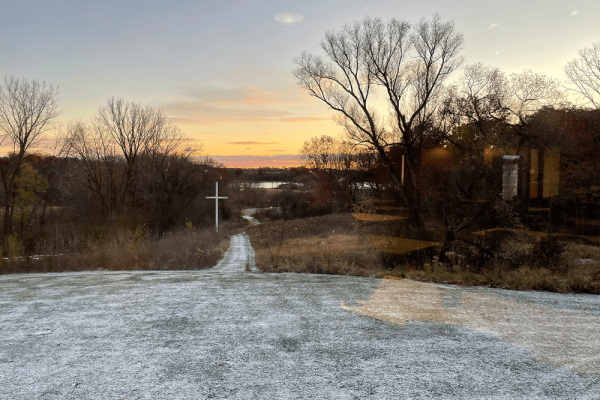Today Radovan Karadžić, former president of Republika Srpska, launched an appeal before the Mechanism for International Criminal Tribunals to overturn the 2016 verdict in which the U.N. war crimes tribunal found him guilty of war crimes, crimes against humanity, and genocide in the Srebrenica massacre during the war in the former Yugoslavia between 1992 and 1995. At the opening of the appeals hearing, Karadžić told the court that his conviction was based on “jokes and rumors.”
In 1996, shortly after the end of the siege of Sarajevo, I reported from Bosnia for Sojourners. Late one afternoon, we arrived at the town of Pale — the government stronghold of the provisional Republika Srpska and home of Radovan Karadžić, already accused, then, by the International Criminal Tribunal of "almost unparalleled acts of cruelty."
Below is an excerpt from my notes from that time:
Our car is assigned a military guard for the ride up Jajolina Mountain. He introduces himself as "Tyson, like Mike Tyson." He's in his mid-30s, short-cropped sandy brown hair, flat forest green eyes, wearing the uniform of the Serb Special Forces. … Tyson tells us that he is a professional policeman who went into the security forces when he was 14. He says that when the war ends he will remain in the military, but he will never work for any federation that includes Muslims.
…The road to Pale takes us through mountains that are still pristine with old-growth forests and clear waterfalls, past the old bobsled track, the Olympic village, and beautiful mountain-cabin homes. In Sarajevo below, the trees were clear-cut for firewood or grave markers. Tyson says that someday he would like to ski up here again and that maybe it could be open to Croats too, "but Muslims never, because dead heads are dead heads." In other words, the only good Muslim is a dead Muslim. … “If the Serbs could kill the Muslims with stones there would not be enough stones in the whole world to do this!"
…I ask to take Tyson's picture but he covers the camera. Anesa tells me that he is probably on "the list" for war crimes, and that's why he won't let me take his picture or give us his real name.
…[Tyson] shows us the bunkers from which Serb soldiers shelled Sarajevo. He begins to tell Ivo how he can't sleep at night, that he doesn't know how to heal after such an experience. In the Special Forces they take no prisoners. Tyson tells us of the number of times he almost died. Once a grenade landed between his legs but didn't explode. Once dynamite landed right next to him but didn't explode. Once a bullet went right next to his ear but didn't graze him. He says this is a sign that he is still a good man. Ivo tells him that right now he is a young man and can deal with his terrors but that without help they will get worse.
… The car is quiet for a long time.
At the bottom of the mountain, I ask Tyson if he has a message for people in the United States. He tells me he only has limited knowledge of the United States, just what he reads in the newspapers. But he does say this: "America, keep your peace. You don't know how precious it is and how terrible is war."
More than 8,000 Bosnian Muslims were murdered by Serb forces at the town of Srebrenica, under the direction of Radovan Karadžić. Between 1992-1996, more than 100,000 people were killed during the war, and 20,000 women were raped as “weapons of war.” More than 2.2 million people were displaced.
Radovan Karadžić’s appeal will be heard this week by Judge Theodor Meron, with a verdict likely by the end of the year.
Got something to say about what you're reading? We value your feedback!






